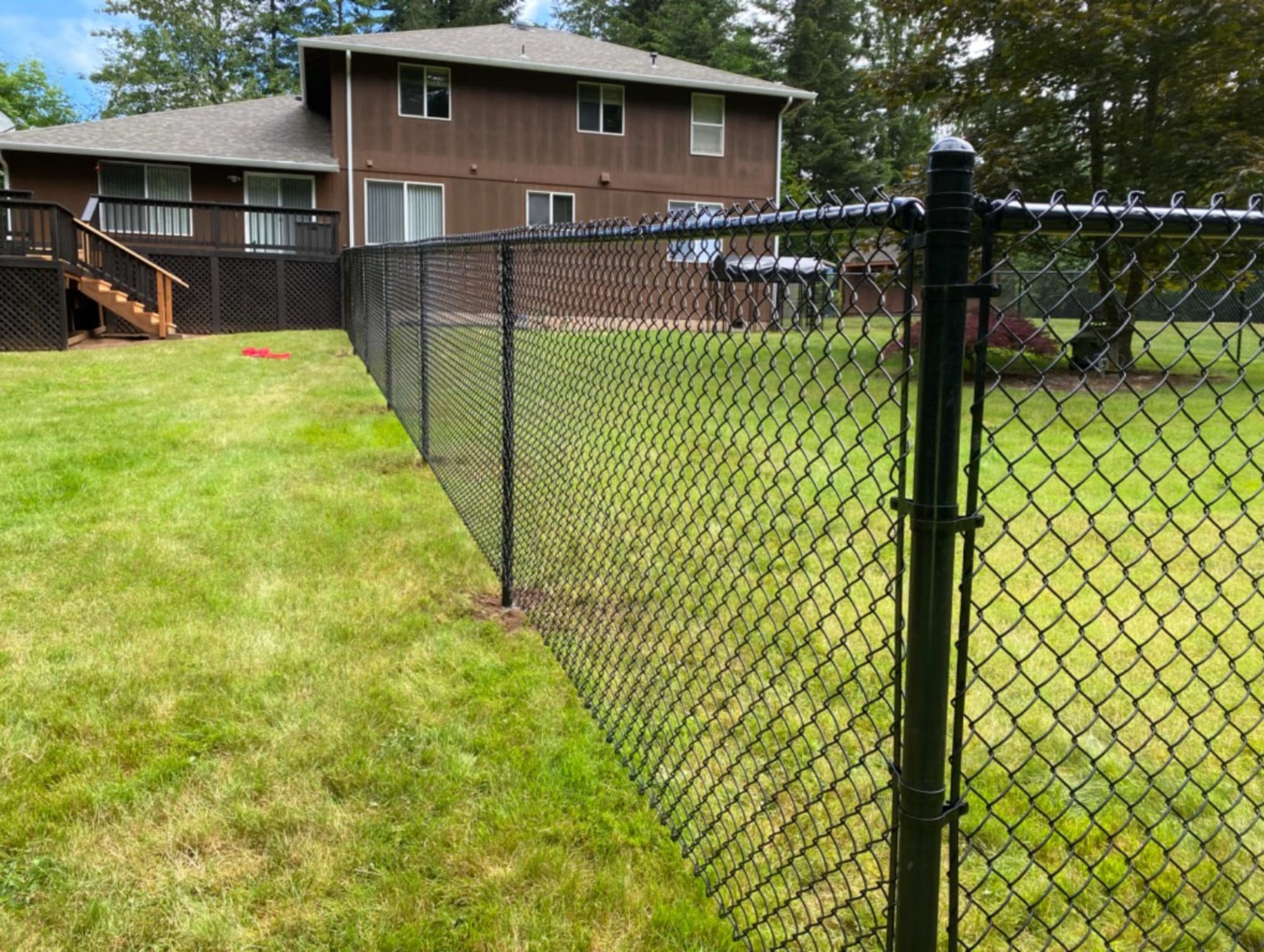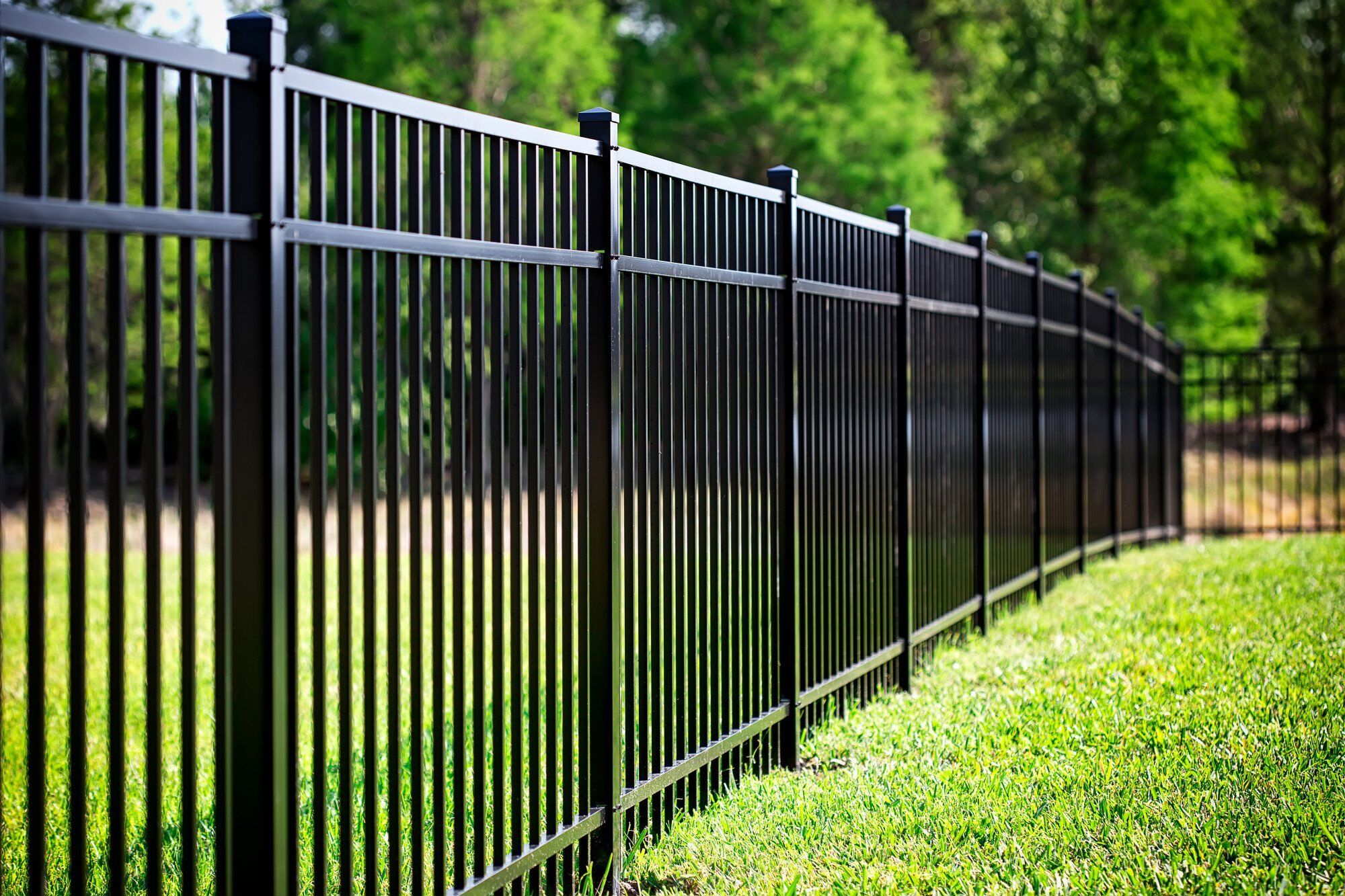All Categories
Featured
If you're considering installing a fence around your home, comprehending the authorization needs in your location is crucial. In this overview, we'll break down the different permits you may need to mount a fencing and how to guarantee your job remains compliant with local regulations.
Why Are Allows Required for Fence Setup? Permits are required to make certain that the fence you develop abide by regional building ordinance, zoning laws, and safety and security standards. These permits remain in location to safeguard your property, the residential properties around you, and the setting. They guarantee that the fencing will not obstruct energies, website traffic flow, or develop threats for pedestrians. Furthermore, they help maintain the aesthetic and structural honesty of your neighborhood.
![]()
Kinds Of Permits You Might Requirement. Building License. A structure permit is one of the most typical need for setting up a fence. This authorization makes certain that the framework you construct follow regional security codes and regulations. You might require to get a building permit if your fencing exceeds a particular height (generally around 6 feet) The neighborhood authorities will commonly examine your plans to guarantee that your fencing is structurally sound and risk-free.
Zoning Authorization. Zoning regulations regulate land use in your area, and they commonly manage where fences can be mounted, as well as how high they can be. A zoning license makes certain that your fencing conforms with these guidelines. As an example, your fence may need to be held up a specific distance from walkways or residential or commercial property lines. Zoning guidelines can differ by area, so it's crucial to examine the particular regulations that apply to your location.
Homeowners Organization (HOA) Approval. You might need approval prior to mounting a fence if your property is component of a homeowners organization. HOAs commonly have rigorous guidelines concerning the kind, design, and materials made use of for fencings to preserve an uniform appearance throughout the neighborhood. The HOA might require you to submit thorough strategies or demand approval before installment. Ensure you follow these standards to avoid potential fines or charges.
Specialty Permits. In many cases, you might need specialized allows based upon the area of your property or the nature of your fencing. For instance, if your home remains in a flooding area, you may require extra licenses to make sure that your fence does not obstruct water drainage or water circulation. In a similar way, if you intend to develop a fencing near an eco safeguarded location, you may need an unique authorization to adhere to environmental policies.
![]()
Utility Easements and Energy Company Authorizations. Prior to setting up a fence, you should inspect if your property has an easement. Building a fencing within an easement can conflict with utility upkeep or damages underground lines.
Just How to Identify Which Allows You Required. Contact Local Authorities. The very first step in determining the permits required is to call your regional structure department or zoning office. They can offer certain information about what permits are essential for your location. Many cities have on-line resources or portals where you can examine the requirements or also apply for a permit online.
Seek Advice From a Specialist Fencing Specialist. A neighborhood fence contractor is often aware of the permit process and neighborhood regulations. They can aid you navigate the needs and ensure that your task is compliant. Numerous contractors also handle the license application process on your part, conserving you time and effort.
Review Your Community's HOA Standards. If you stay in a neighborhood regulated by an HOA, make sure to evaluate their standards before obtaining any permits. The HOA may call for certain layouts, products, or elevation restrictions for fencings within the neighborhood. Send your strategies to them for approval before proceeding.
![]()
Repercussions of Not Obtaining a Permit. Installing a fence without the called for authorizations can lead to severe repercussions. Possible buyers may wait to buy a residential or commercial property with an unpermitted fencing, especially if it's in offense of zoning legislations.
Verdict. Before installing a fencing on your residential or commercial property, make certain you comprehend the neighborhood laws and obtain any type of needed licenses. Building authorizations, zoning permits, HOA approvals, and specialized permits all play a crucial duty in making certain that your fence is risk-free, lawful, and certified.
Why Are Allows Required for Fence Setup? Permits are required to make certain that the fence you develop abide by regional building ordinance, zoning laws, and safety and security standards. These permits remain in location to safeguard your property, the residential properties around you, and the setting. They guarantee that the fencing will not obstruct energies, website traffic flow, or develop threats for pedestrians. Furthermore, they help maintain the aesthetic and structural honesty of your neighborhood.

Kinds Of Permits You Might Requirement. Building License. A structure permit is one of the most typical need for setting up a fence. This authorization makes certain that the framework you construct follow regional security codes and regulations. You might require to get a building permit if your fencing exceeds a particular height (generally around 6 feet) The neighborhood authorities will commonly examine your plans to guarantee that your fencing is structurally sound and risk-free.
Zoning Authorization. Zoning regulations regulate land use in your area, and they commonly manage where fences can be mounted, as well as how high they can be. A zoning license makes certain that your fencing conforms with these guidelines. As an example, your fence may need to be held up a specific distance from walkways or residential or commercial property lines. Zoning guidelines can differ by area, so it's crucial to examine the particular regulations that apply to your location.
Homeowners Organization (HOA) Approval. You might need approval prior to mounting a fence if your property is component of a homeowners organization. HOAs commonly have rigorous guidelines concerning the kind, design, and materials made use of for fencings to preserve an uniform appearance throughout the neighborhood. The HOA might require you to submit thorough strategies or demand approval before installment. Ensure you follow these standards to avoid potential fines or charges.
Specialty Permits. In many cases, you might need specialized allows based upon the area of your property or the nature of your fencing. For instance, if your home remains in a flooding area, you may require extra licenses to make sure that your fence does not obstruct water drainage or water circulation. In a similar way, if you intend to develop a fencing near an eco safeguarded location, you may need an unique authorization to adhere to environmental policies.

Utility Easements and Energy Company Authorizations. Prior to setting up a fence, you should inspect if your property has an easement. Building a fencing within an easement can conflict with utility upkeep or damages underground lines.
Just How to Identify Which Allows You Required. Contact Local Authorities. The very first step in determining the permits required is to call your regional structure department or zoning office. They can offer certain information about what permits are essential for your location. Many cities have on-line resources or portals where you can examine the requirements or also apply for a permit online.
Seek Advice From a Specialist Fencing Specialist. A neighborhood fence contractor is often aware of the permit process and neighborhood regulations. They can aid you navigate the needs and ensure that your task is compliant. Numerous contractors also handle the license application process on your part, conserving you time and effort.
Review Your Community's HOA Standards. If you stay in a neighborhood regulated by an HOA, make sure to evaluate their standards before obtaining any permits. The HOA may call for certain layouts, products, or elevation restrictions for fencings within the neighborhood. Send your strategies to them for approval before proceeding.

Repercussions of Not Obtaining a Permit. Installing a fence without the called for authorizations can lead to severe repercussions. Possible buyers may wait to buy a residential or commercial property with an unpermitted fencing, especially if it's in offense of zoning legislations.
Verdict. Before installing a fencing on your residential or commercial property, make certain you comprehend the neighborhood laws and obtain any type of needed licenses. Building authorizations, zoning permits, HOA approvals, and specialized permits all play a crucial duty in making certain that your fence is risk-free, lawful, and certified.
Latest Posts
Smooth Floor Covering Installment-- The Carpet Interiors Floor & Home Way
Published Apr 20, 25
2 min read
Professional Auto Care at Montclare Auto Repair - Explore Now
Published Apr 20, 25
2 min read
Effortless Coin Conversion with Coinstar and WyHy Federal Cooperative Credit Union
Published Apr 20, 25
1 min read
More
Latest Posts
Smooth Floor Covering Installment-- The Carpet Interiors Floor & Home Way
Published Apr 20, 25
2 min read
Professional Auto Care at Montclare Auto Repair - Explore Now
Published Apr 20, 25
2 min read
Effortless Coin Conversion with Coinstar and WyHy Federal Cooperative Credit Union
Published Apr 20, 25
1 min read